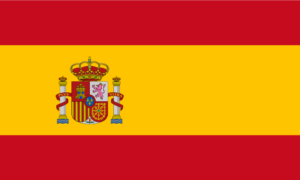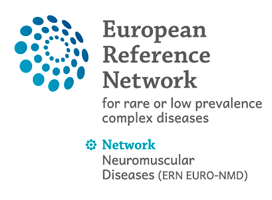Contact
Marisol Montolio
- Member of the Patient Advisory Board

With more than 20 years of research experience, Marisol Montolio is the Scientific Director of the Duchenne Parent Project Spain and Curator of the Patient Registry, promoting scientific research in Duchenne and Becker Muscular Dystrophy. Marisol Montolio is a Biologist and has a PhD in Neuroscience from the University of Barcelona. She has worked in the identification of drugs for neurological diseases, including genetic and degenerative diseases, and later acquired extensive experience in coordinating and executing research collaborations between academic groups, patient Representatives, private companies, foundations and associations on the research of rare diseases. She is also adjunct professor at the University of Barcelona.
Contact me at pab@ern-euro-nmd.eu
“Tell us about yourself”
Marisol took part in an interview in September 2019 in which she was asked about her role within the network and her expectations. Below is a transcript of the interview which has previously featured in the EURO-NMD monthly newsletter .
a. Tell us a little bit about yourself
“I’m Biologist and PhD in Neuroscience at the University of Barcelona. I’m the Scientific Director of Duchenne Parent Project Spain (DPPE), Curator of the Patient Registry in Spain and the Director of the Technological Department in DPPE, since 2015. Also, I’m an Adjunct Professor at the University of Barcelona. I coordinate this activity with an active collaboration with EURORDIS as a member of the European Patient Advocacy Group in the ERN (Patient Advisory Board, Research Board and member of the Muscle Diseases Specialist Group) and member of the Solve-RD. Also, I am in the management committee COST Action CA17103 (Delivery of antisense RNA Therapeutics) and I have been elected as a member of the External Scientific Board of the Hospital Sant Joan de Déu, Barcelona.”
b. What is your role in EURO-NMD?
“I give a voice to patients in research. In my point of view, in order to have translational research of the different rare diseases, we need to get all the stakeholders together and, in this point, the voice of the patient is important in all the steps. In the field of research in rare diseases, we have come a long way, but we haven’t made it even halfway far enough and the first step is the Patients Registries”
c. What are your expectations of the Network?
“EURO-NMD is the key to disseminate information with guidelines about care and treatments. But also, it is the way to end with the underdiagnosis in the rare diseases, and this Network generates the opportunity to have a bridge to Patients Registries compatibles. Another point is that, with this Network, we try to contribute to the definition of research priority areas based on patients and families point of view.”

